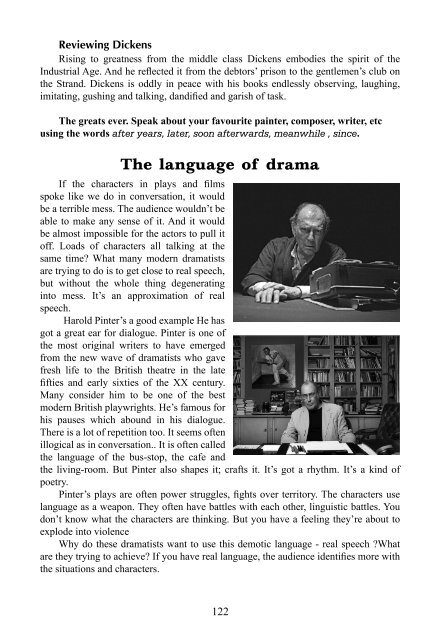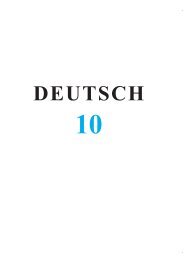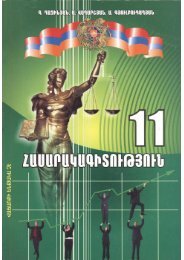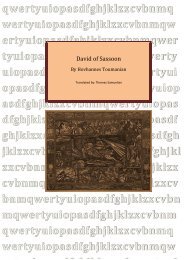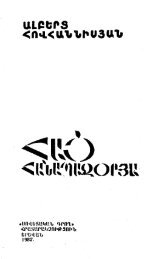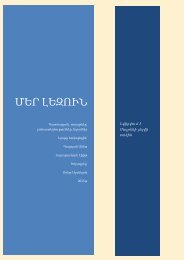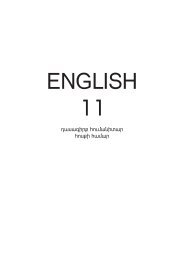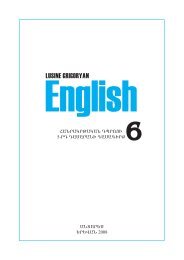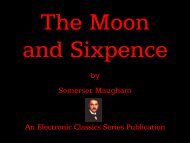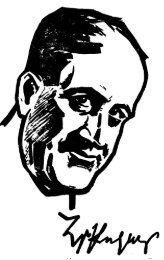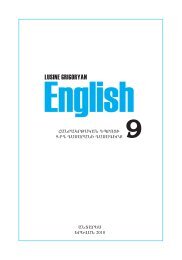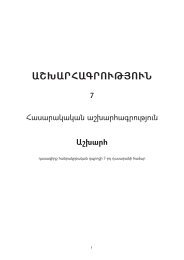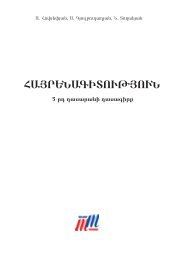Focus on Words
Focus on Words
Focus on Words
Create successful ePaper yourself
Turn your PDF publications into a flip-book with our unique Google optimized e-Paper software.
Reviewing Dickens<br />
Rising to greatness from the middle class Dickens embodies the spirit of the<br />
Industrial Age. And he reflected it from the debtors’ pris<strong>on</strong> to the gentlemen’s club <strong>on</strong><br />
the Strand. Dickens is oddly in peace with his books endlessly observing, laughing,<br />
imitating, gushing and talking, dandified and garish of task.<br />
The greats ever. Speak about your favourite painter, composer, writer, etc<br />
using the words after years, later, so<strong>on</strong> afterwards, meanwhile , since.<br />
The language of drama<br />
If the characters in plays and films<br />
spoke like we do in c<strong>on</strong>versati<strong>on</strong>, it would<br />
be a terrible mess. The audience wouldn’t be<br />
able to make any sense of it. And it would<br />
be almost impossible for the actors to pull it<br />
off. Loads of characters all talking at the<br />
same time? What many modern dramatists<br />
are trying to do is to get close to real speech,<br />
but without the whole thing degenerating<br />
into mess. It’s an approximati<strong>on</strong> of real<br />
speech.<br />
Harold Pinter’s a good example He has<br />
got a great ear for dialogue. Pinter is <strong>on</strong>e of<br />
the most original writers to have emerged<br />
from the new wave of dramatists who gave<br />
fresh life to the British theatre in the late<br />
fifties and early sixties of the XX century.<br />
Many c<strong>on</strong>sider him to be <strong>on</strong>e of the best<br />
modern British playwrights. He’s famous for<br />
his pauses which abound in his dialogue.<br />
There is a lot of repetiti<strong>on</strong> too. It seems often<br />
illogical as in c<strong>on</strong>versati<strong>on</strong>.. It is often called<br />
the language of the bus-stop, the cafe and<br />
the living-room. But Pinter also shapes it; crafts it. It’s got a rhythm. It’s a kind of<br />
poetry.<br />
Pinter’s plays are often power struggles, fights over territory. The characters use<br />
language as a weap<strong>on</strong>. They often have battles with each other, linguistic battles. You<br />
d<strong>on</strong>’t know what the characters are thinking. But you have a feeling they’re about to<br />
explode into violence<br />
Why do these dramatists want to use this demotic language - real speech ?What<br />
are they trying to achieve? If you have real language, the audience identifies more with<br />
the situati<strong>on</strong>s and characters.<br />
122


